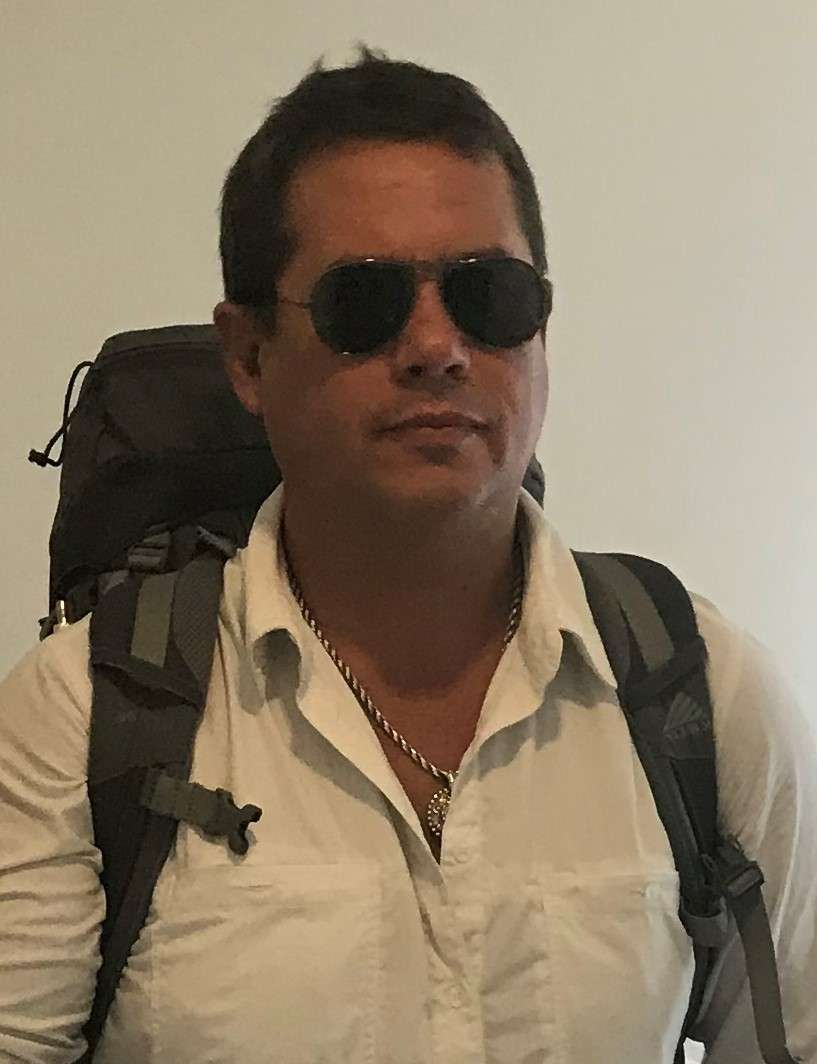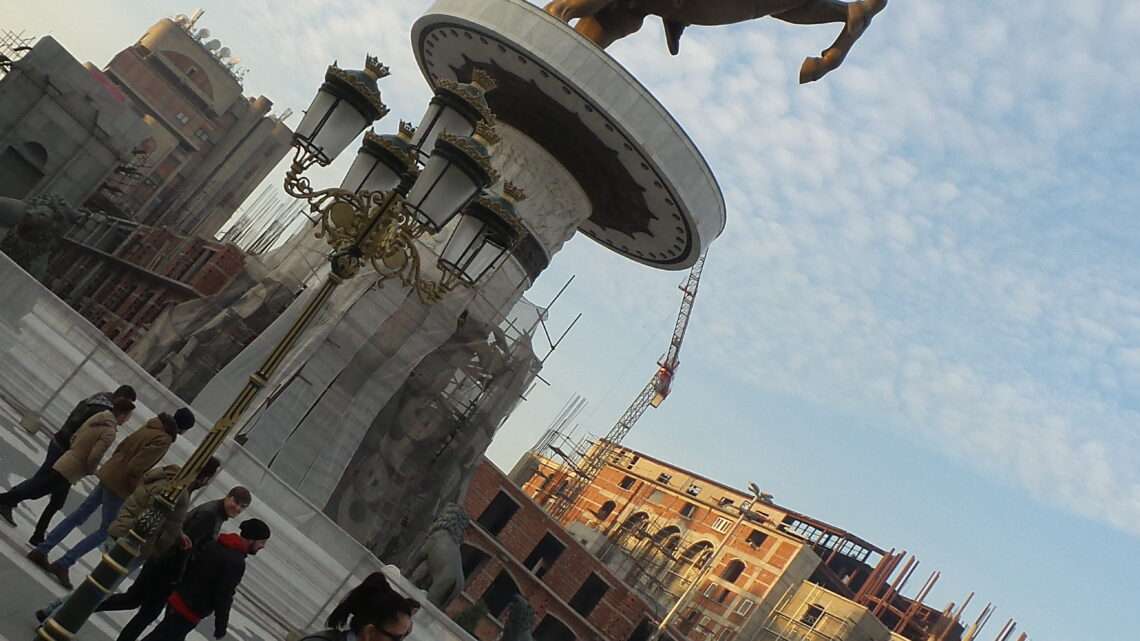Traveling is all about immersing oneself in new cultures, witnessing breathtaking landscapes, and experiencing unforgettable adventures. My trip through the old Ottoman Empire once ruled by sultans, was filled with rural towns, forests, farmed fields, minarets, and bygone eras. And the thing about train travel, is that it takes you beyond the obvious, and allows you glimpses into everyday life, sometimes splendid, sometimes gritty. I have witnessed bygone scenes where my “yesteryear” is another man’s “now” from the sleekness of a comfy carriage. I’ve seen medieval castles, modern cities, and desolate poverty. In my journey through the Balkans, I embarked on a train ride along the western coast of Greece, making my way to Thessaloniki, the second largest city in the country.
Before venturing into the Balkans, I had already explored all of the Baltic States in Northern Europe, consisting of Latvia, Lithuania, and Estonia. These countries, surrounded by the Baltic Sea, had captivated me with their unique charm. Now, my wanderlust directed me towards the Balkan States, a region in Southern Europe encompassing Albania, Bosnia and Herzegovina, Bulgaria, Croatia, Kosovo, Macedonia, Montenegro, Romania, Serbia, and Slovenia. This diverse group of countries, named after the Balkan Mountains, promised a fascinating journey.
Thessaloniki became my base for several days, a vibrant city founded in 315 BC as a bustling Aegean seaport and located on the northeast Thermaic Gulf. Beyond its contemporary facade, the city held centuries-old treasures waiting to be discovered. One of my favorite spots was Aristotelous Square, a bustling hub where locals and visitors alike gathered, especially as the sun began to set. It was here that I stumbled upon the remnants of the once-largest Jewish cemetery in the world, with Jews settling here from Egypt and Alexandria way back when the Apostle Paul was trying to convert them to Christianity in the first century.
After settling into Thessaloniki, I decided to embark on a day trip to Skopje, the capital and largest city of North Macedonia. Surrounded by majestic mountains, Skopje sits along the banks of the Vardar River. My exploration focused on the right bank, home to the city’s economic and commercial center. The charm of Skopje revealed itself through its unique architecture and vibrant atmosphere.
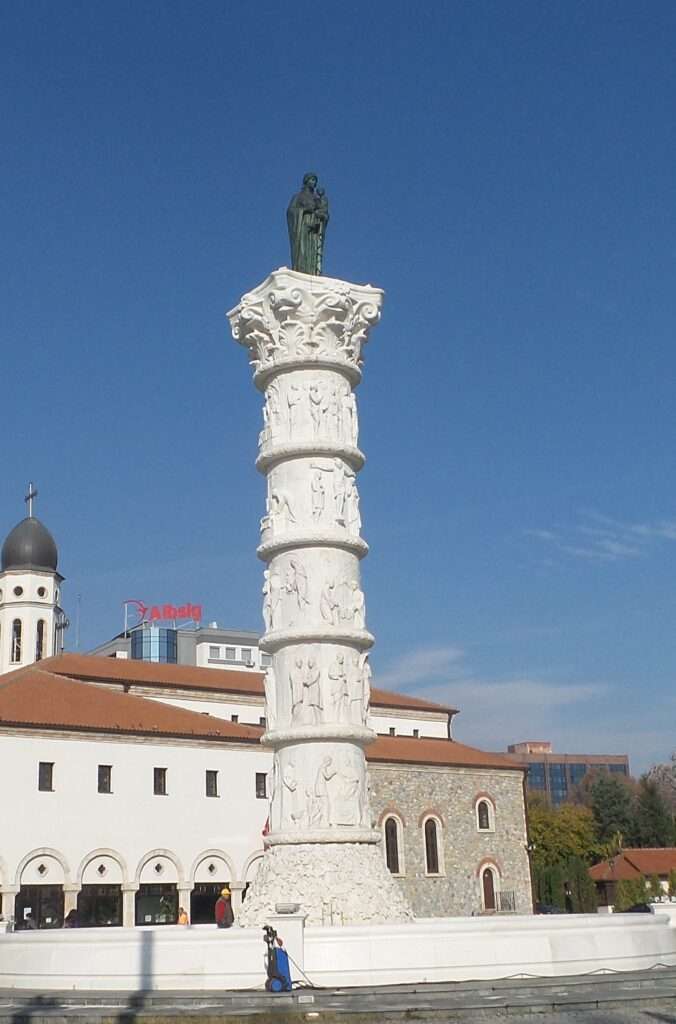
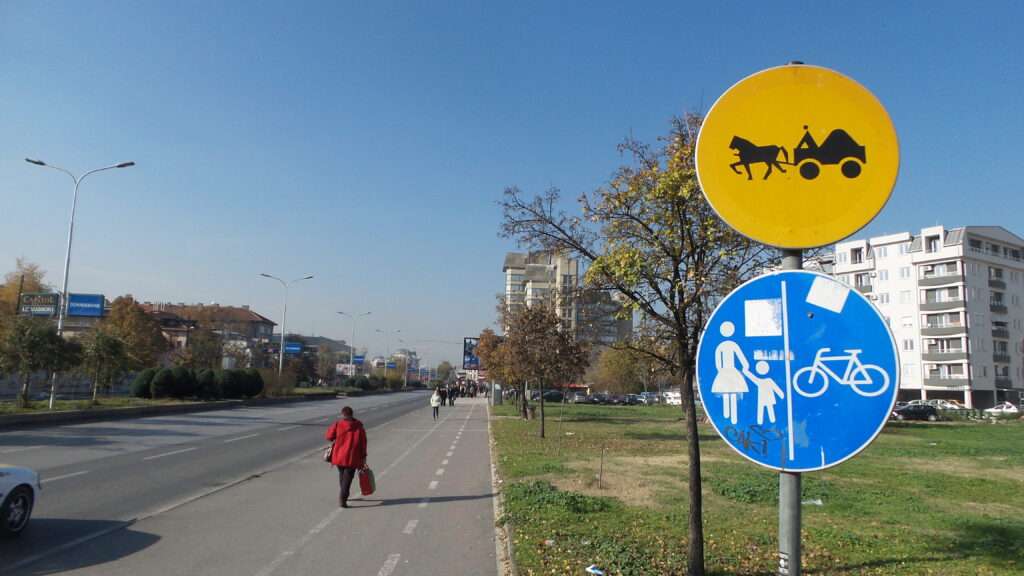
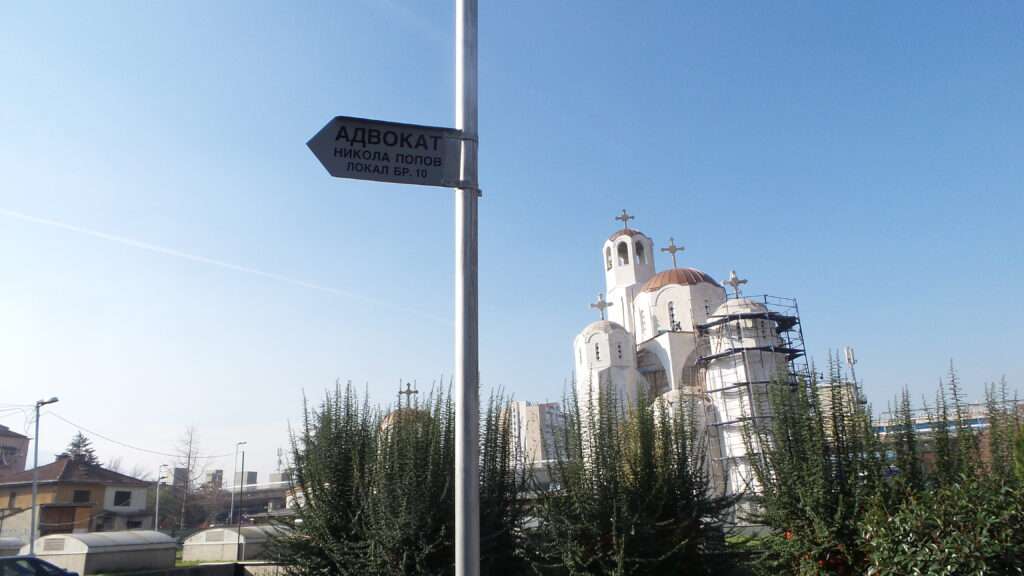
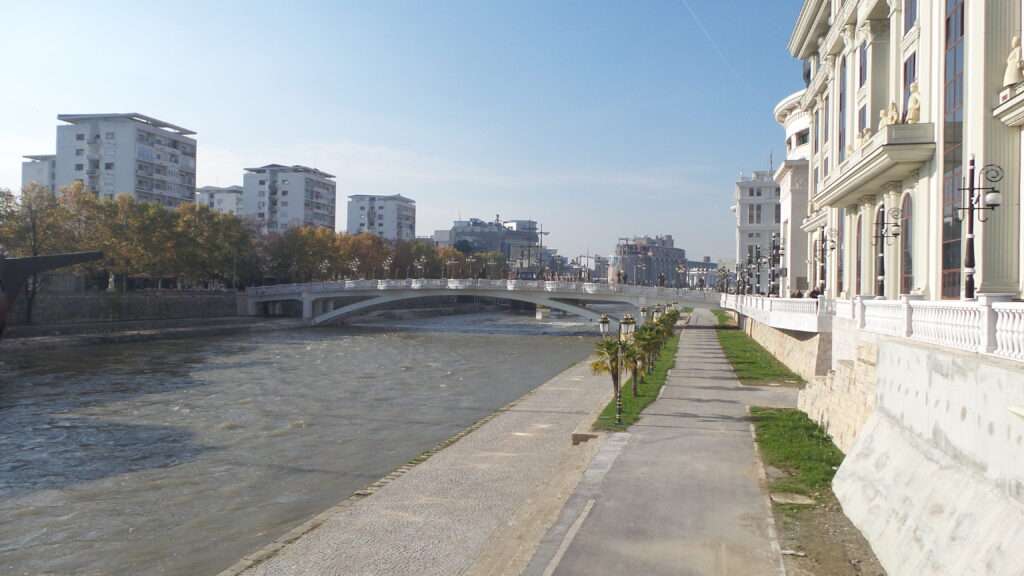
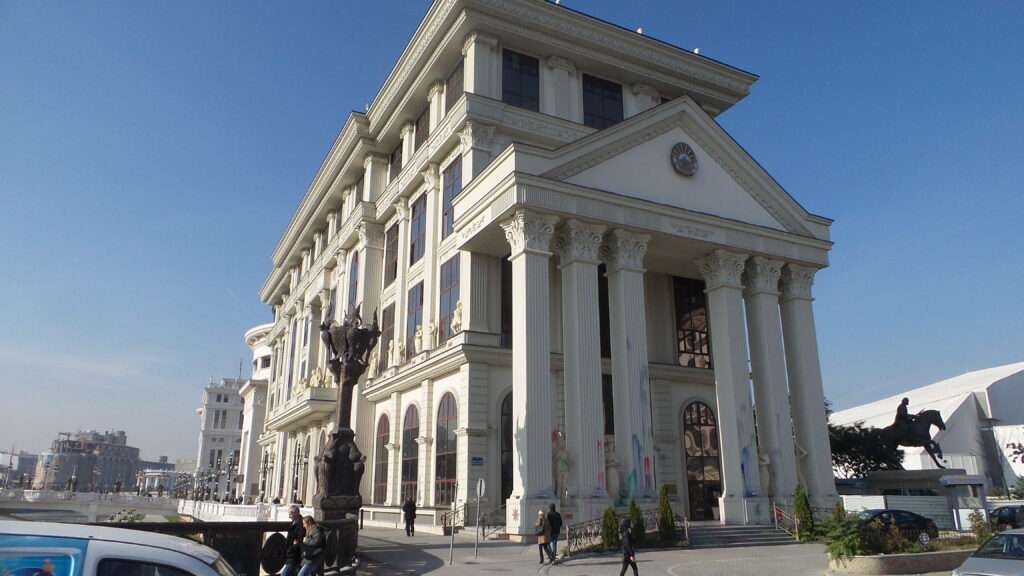
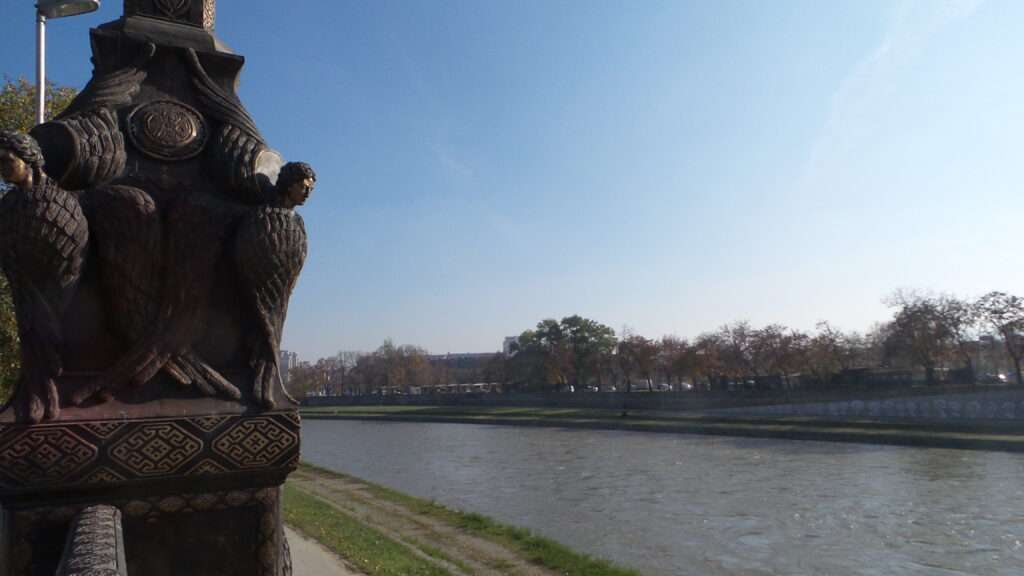
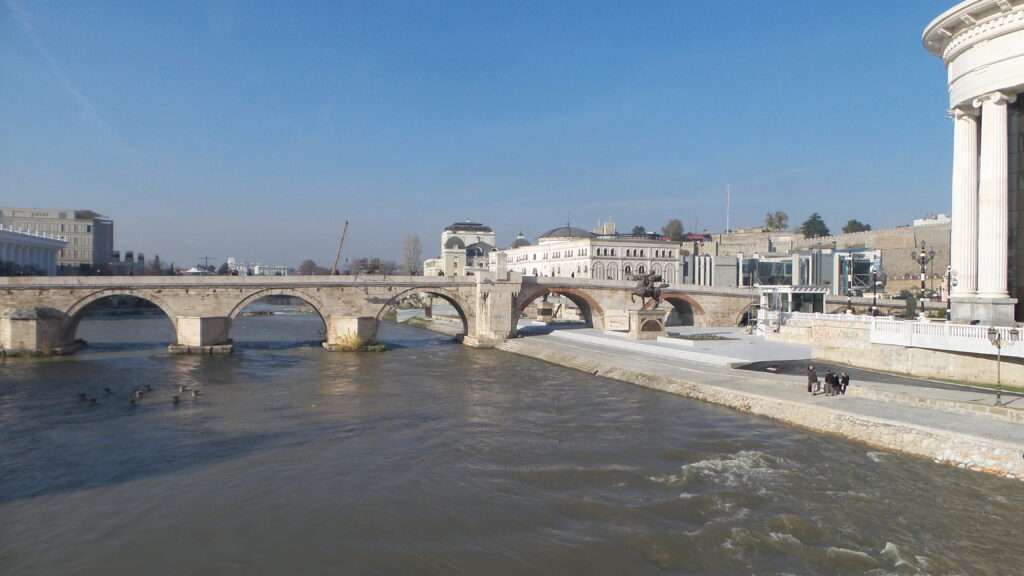
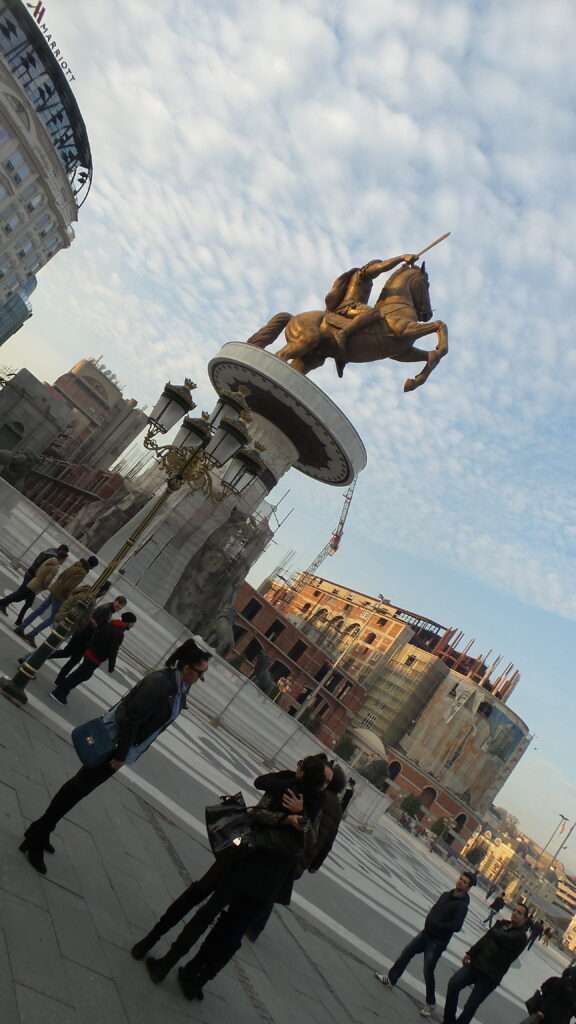
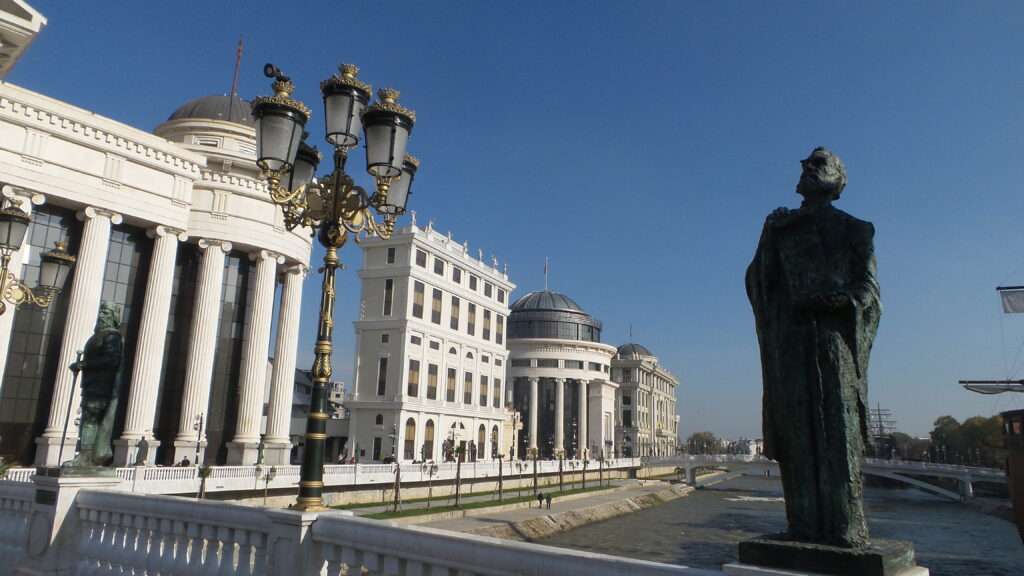
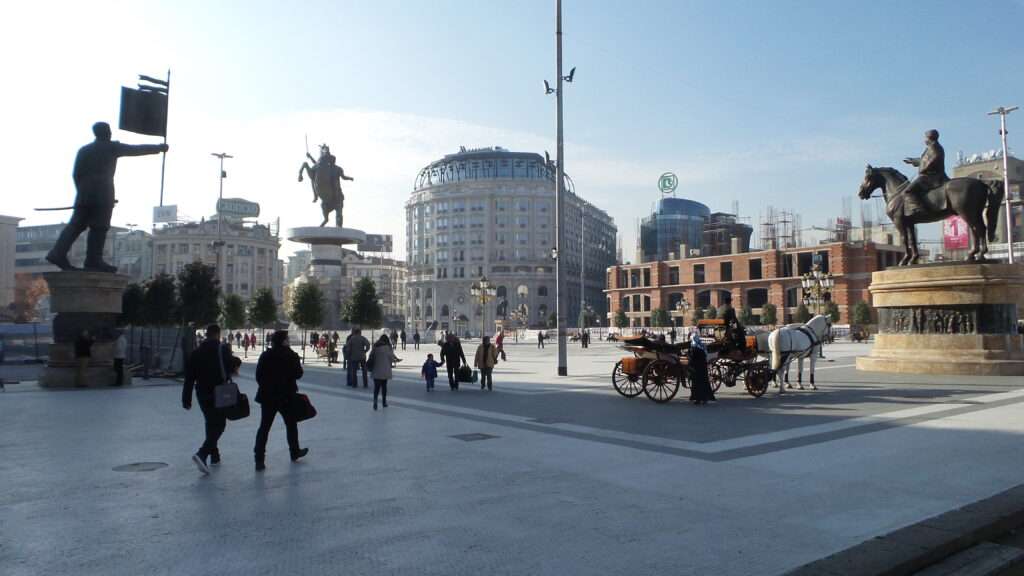
Back in Thessaloniki, I purchased a ticket to Korce, a city located just 10 miles (15 kilometers) into the Albanian border from Greece. The bus journey was an experience in itself, with tunnels carved through mountains and giant fans dispersing exhaust fumes. The rugged yet beautiful mountainous landscapes left me in awe. Sometimes the roads stretched for miles without a single soul in sight, while other sections were lined with high barbed wire and warning signs indicating the presence of bears.
Approaching the Kapshtice border crossing between Albania and Greece, multiple signs forbade photography or videos. Taking notes became my attempt to capture the unfolding scene. The Albanian border station, nestled within a natural mountain pass, appeared heavily fortified. As we waited on the bus, a border agent collected passports from all 52 passengers. It was a chilly November morning, with thick smog engulfing the no-man’s land between the two countries. Stray dogs roamed, and the surrounding area was dirty, with mud-covered walkways. Inside this peculiar zone, taxi drivers and police officers mingled with those awaiting border clearance.
A guard boarded the bus, delivering the stack of freshly inked passports with outbound stamps from Greece to a passenger in the front row, who took on the task of distributing them. Among the passports, only one stood out—a blue one, mine. Unfortunately, one passenger was denied from leaving Greece and was escorted off the bus, causing a delay and bureaucratic hurdles. The remaining passengers and I had been stamped out of Greece and found ourselves officially in no-man’s land. An announcement was made, and though I couldn’t understand the language, I followed the crowd as everyone stood up to leave the bus.
Exiting into the chilly air, the intense smog threatened to overwhelm me. Yet, there were locals who stood in groups, smoking and tossing cigarette butts onto trash piles nearby. The scene resembled a refugee or homeless camp, with lines of people waiting for passport clearance, most with luggage and some without. The diversity of people was striking, as I stood in line, hoping I had chosen the right one. A child rummaged through trash, while a man filed his toenail with a rock. People consumed unfamiliar fruits, and a worker dug a drainage pit using a large stone. The sound of a nearby jackhammer echoed in the air. No one looked like me.
There were many Muslims dressed in traditional robes, and women adorned in hijabs, showcasing the diversity of the region. I witnessed a rather unfortunate incident when two women attempted to use a locked restroom, and nearby men burst into laughter, highlighting the persistence of gender stereotypes. Amidst the commotion, a man engaged in a passionate phone conversation while pushing a wheelbarrow filled with fresh cement, adding a touch of intrigue to the scene.
What struck me the most was the absence of smartphones. Instead, people relied on the trusty small Nokia raised push-button phones, capturing a different era of communication. Amidst this technological contrast, I noticed a small black cat with a severe limp, bravely following a majestic husky dog walking past a nice-looking Mercedes full of nice-looking people. An oddity in the area.
As I approached the front of the line, I presented my passport to enter Albania. Next to me, a group of men pleaded with officials, clutching crumpled paperwork and suitcases. Another man, appeared dressed as a carnival clown with a very oversized suit, stood out with his mismatched attire and was carrying a large stack of newspapers. I observed all luggage and each vehicle and its belongings undergoing a thorough inspection. Abandoned vehicles hinted at the possibility of individuals being denied entry or exit and getting stuck in this limbo-like place. Back on the bus, vendors boarded, offering peculiar items such as gum, tissues, and even stacks of Albanian currency for sale. I exchanged five euros for 600 Lek, the local currency.
Continuing our journey, we left the border station behind and arrived at a gas station in Korce. Few passengers disembarked, and the bus continued its route. As I wandered through Korce, I felt a bit out of place as I quickly realized I was the only out of towner. Starting on the outskirts of town, I began walking, uncertain of my destination. Locals seemed curious about my every move. In a small restaurant, I used 150 Lek to purchase a sandwich and a drink. When I left a 50 Lek tip, the waitress displayed immense gratitude. Inquiring about a restroom, I received a straightforward answer—they had none, and I kind of believed her. I stumbled upon a small facility with squatty potties, lacking toilet paper or handwashing facilities, an experience that left a lasting olfactory impression.
Returning to the bus station, I bought a Snickers bar, some chips, and a drink for the return trip. I spent a mere $2.50 in Albania, a testament to the affordability of this unique journey. While waiting at the station, I observed peculiar sights, from tiny three-wheel vehicles to a grand house adorned with laundry hanging from its balconies.
Boarding a smaller bus with only three other passengers, we made our way back through the border station, headed for Thessaloniki. Along the way, we passed mosques with minarets, shepherds tending their flocks of sheep and goats, and farmers utilizing outdated machinery. The landscape shifted from idyllic countryside scenes to rundown areas littered with junk metal and trash. The sight of dirty individuals, some pushing carts filled with scrap metal, painted a picture of hardship. Amongst these scenes, I spotted a horse pulling a cart filled with hay, men perched atop the haystack. As we continued, I witnessed a moped trudging through a muddy field, while wild cotton and wild horses dotted the landscape. At the border station, confusion reigned as I witnessed some immigrants with a small baby denied entry.
Crossing back into Greece and cruising along the highway toward Thessaloniki, I momentarily reclined in my seat, placing my legs on the vacant seat next to me. In broken English, the driver kindly requested that I sit properly, reminding me that despite the dilapidated and dirty surroundings throughout the trip, proper decorum was still expected. As the day came to an end, I felt a sense of relief upon returning to familiar territory. This journey had granted me the opportunity to witness an alternative way of life, far removed from my own, and added another country to my list of visited places.
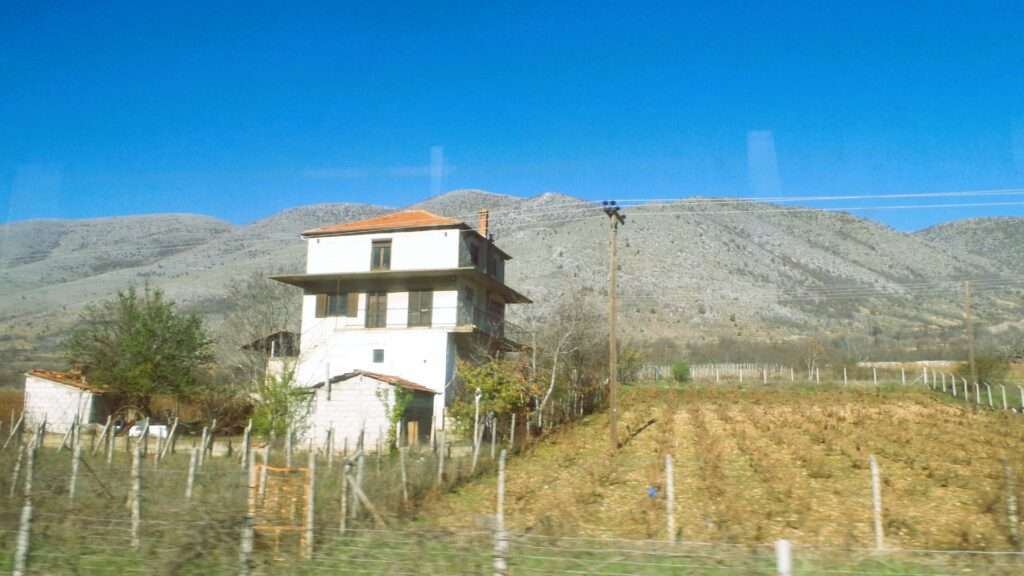
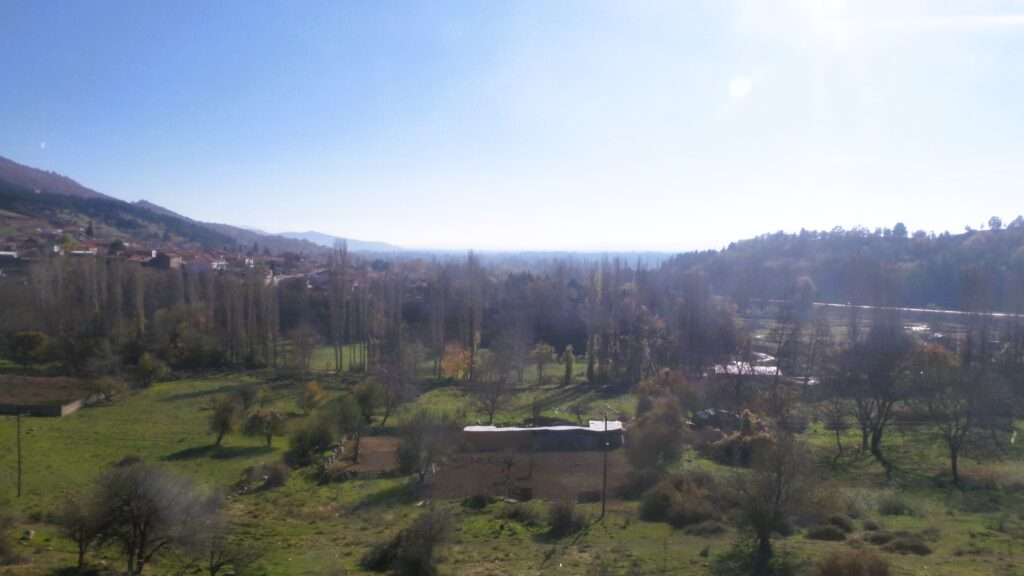
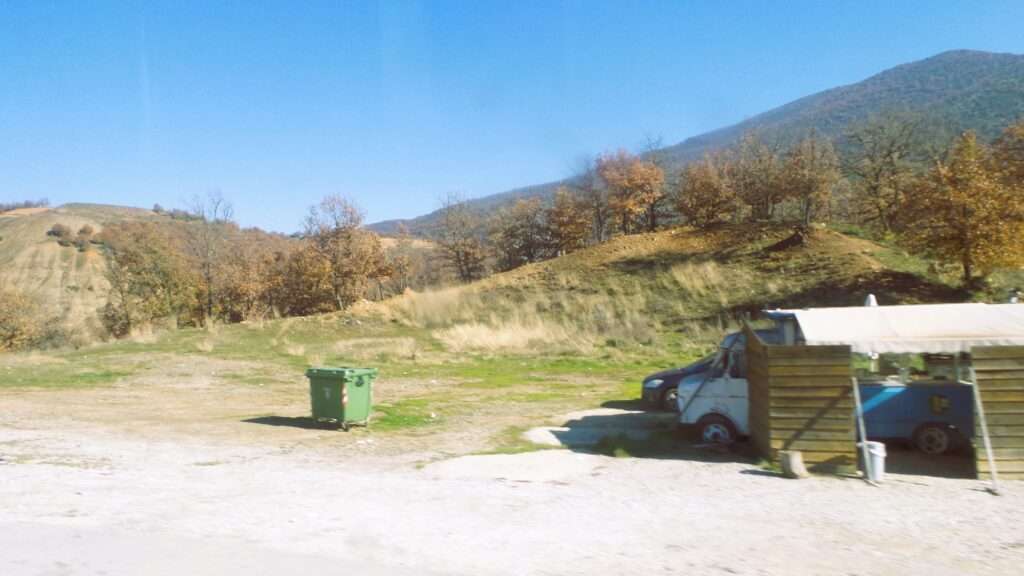
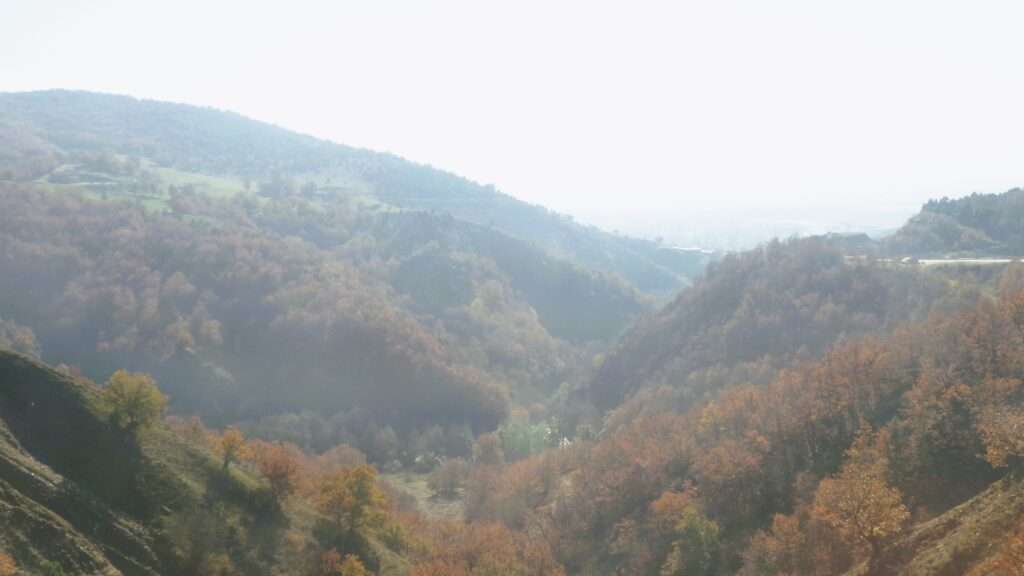
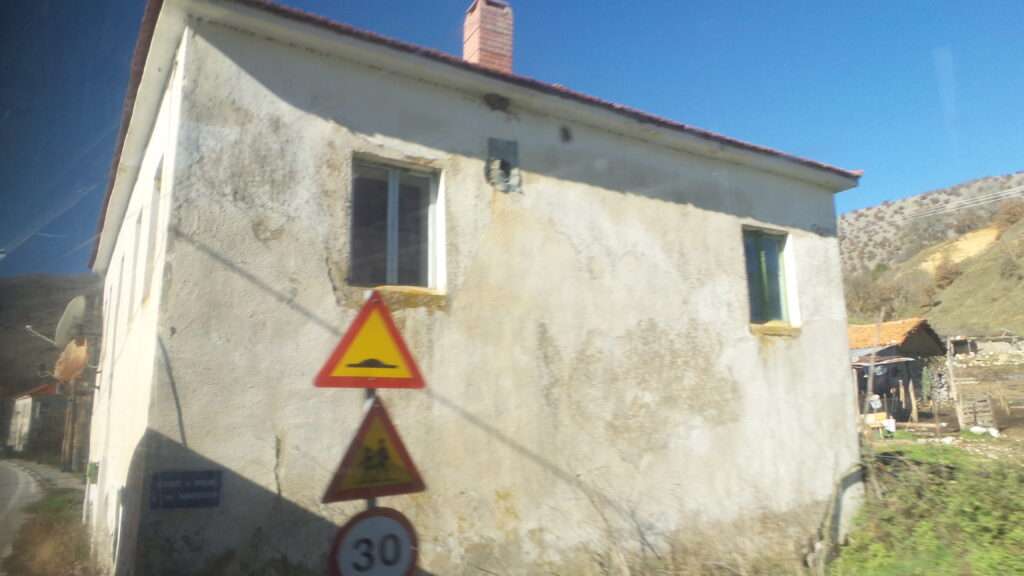
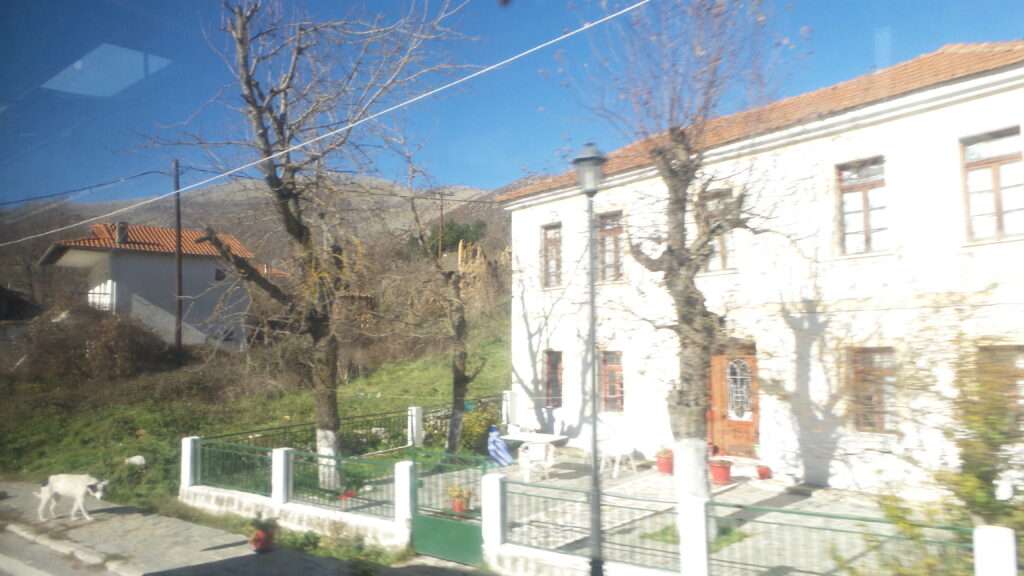
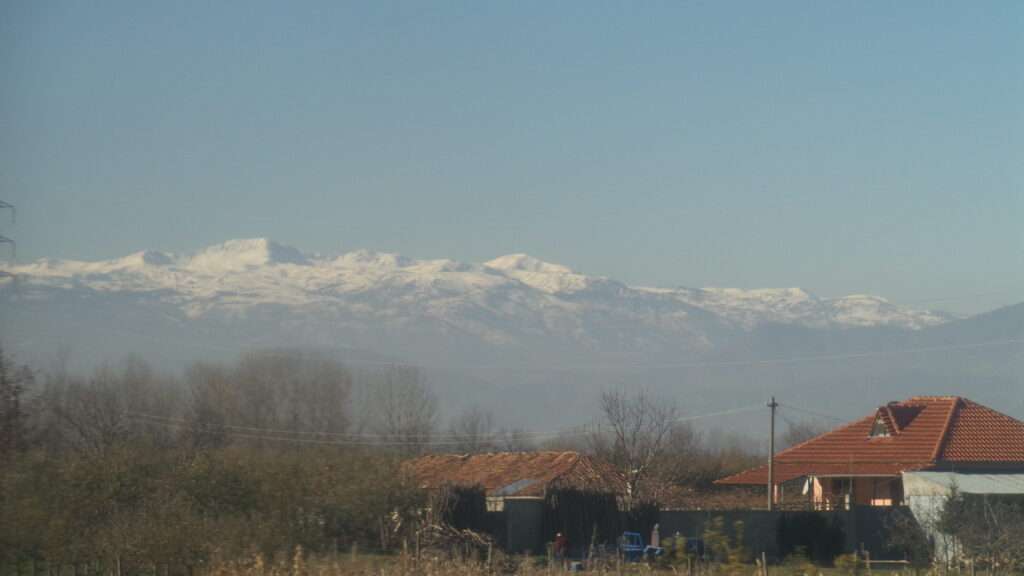
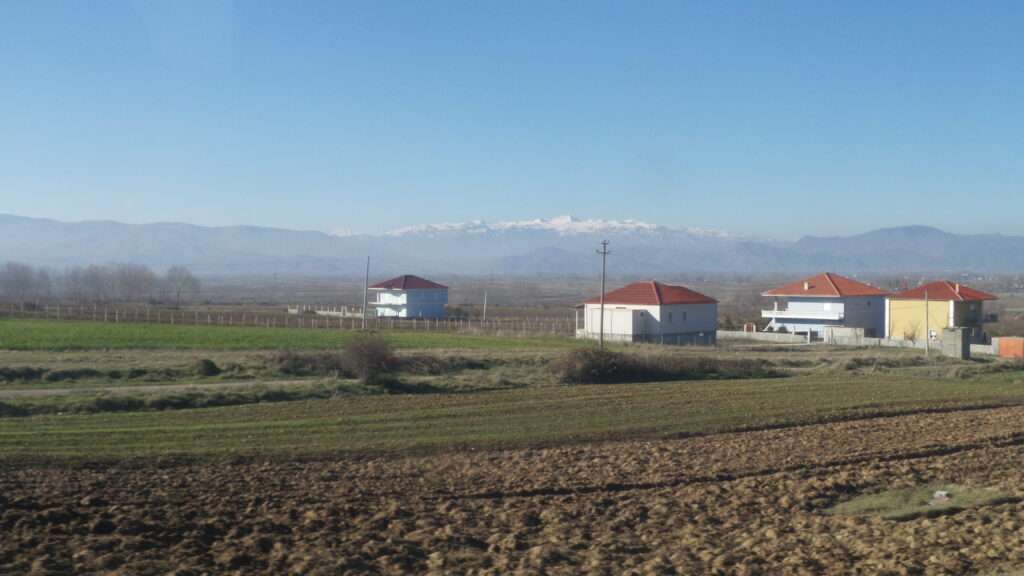
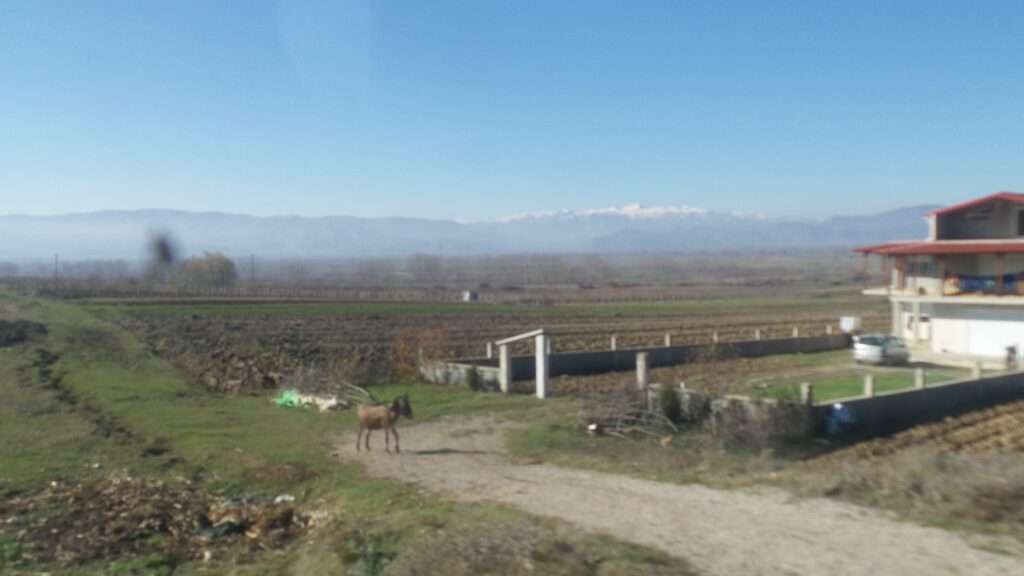

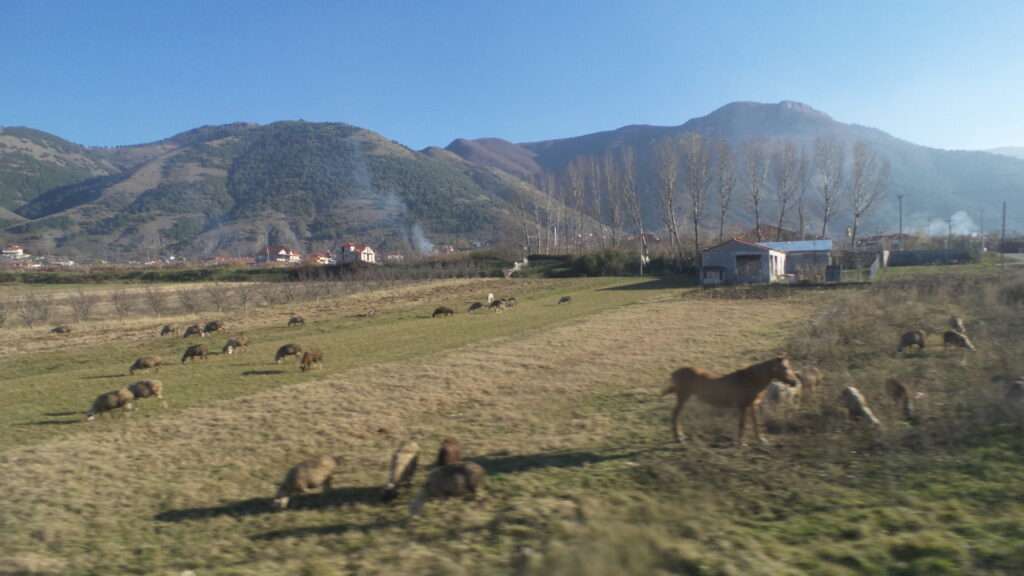
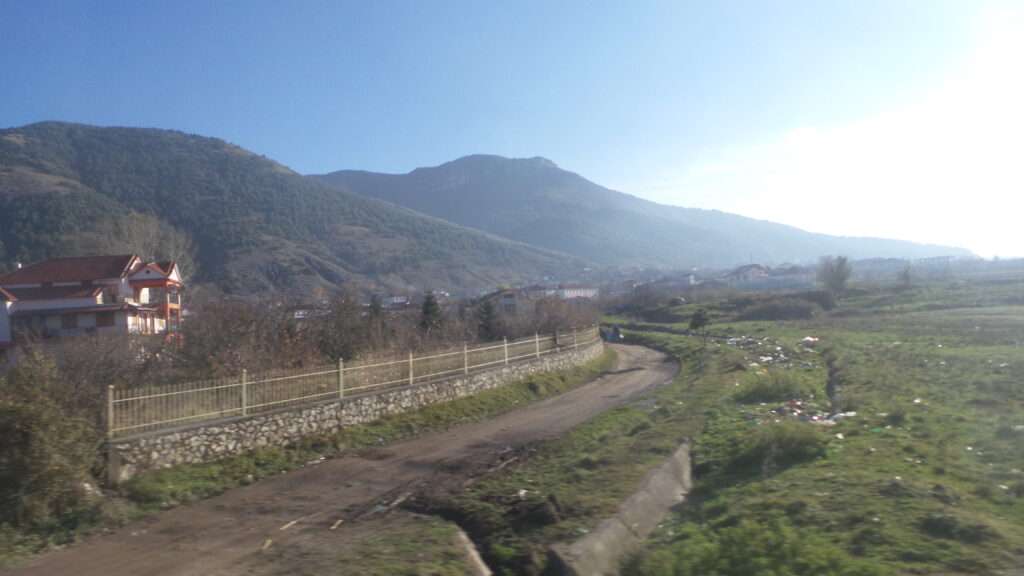
After bidding farewell to Thessaloniki, home of Alexander the Great, and picturesque views of Mount Olympus dating back to Biblical times, I secured a train ticket to Sofia, Bulgaria. However, what should have been a five-and-a-half-hour journey stretched into nine hours due to train malfunctions and unforeseen delays. Finally arriving in Sofia, I settled into my hotel. Exhausted but hungry, I ordered a room service meal of Bulgarian Veal Goulash, accompanied by Greek bread, rice with wild mushrooms, and a touch of butter and cognac. It was a comforting and satisfying end to a long day, offering respite after experiencing the diverse landscapes of Bulgaria from the vantage point of my train window.
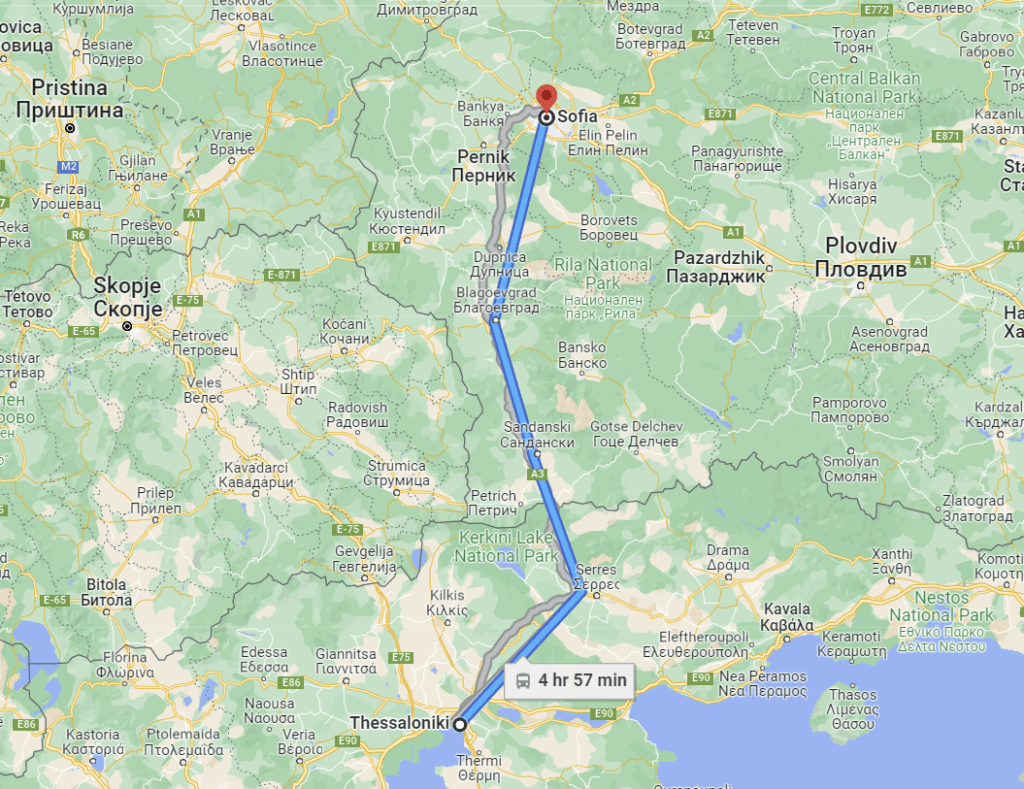
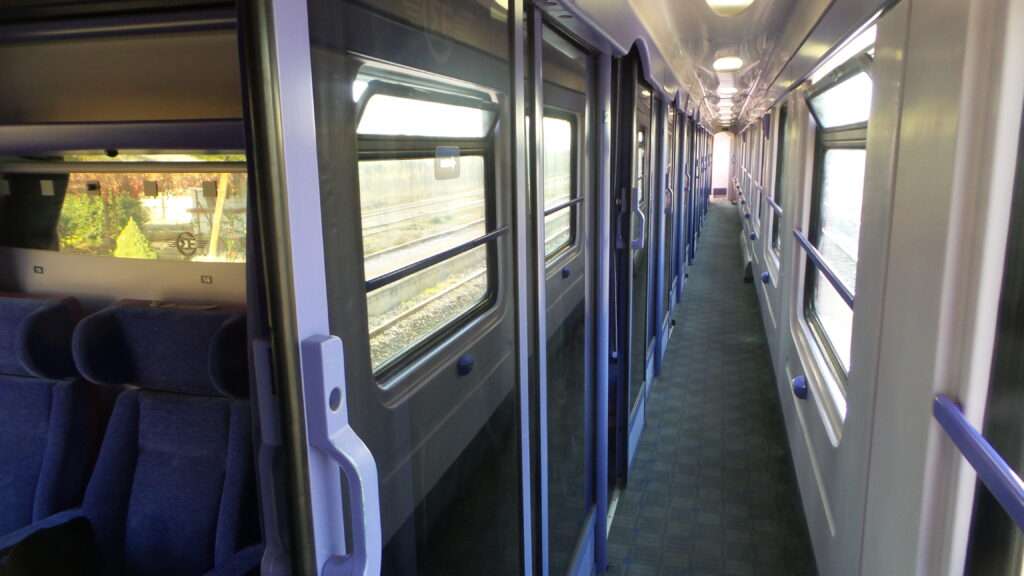
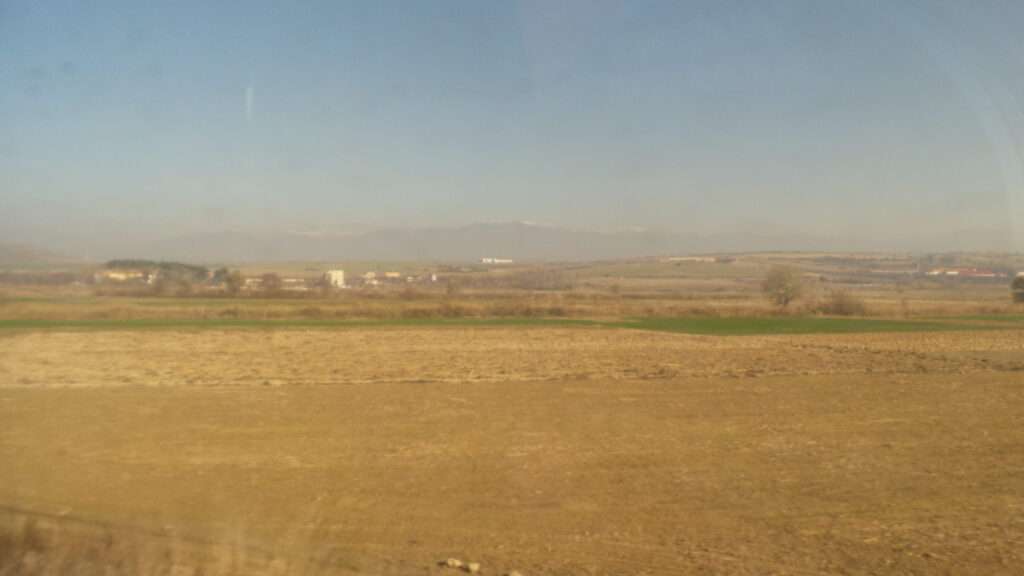
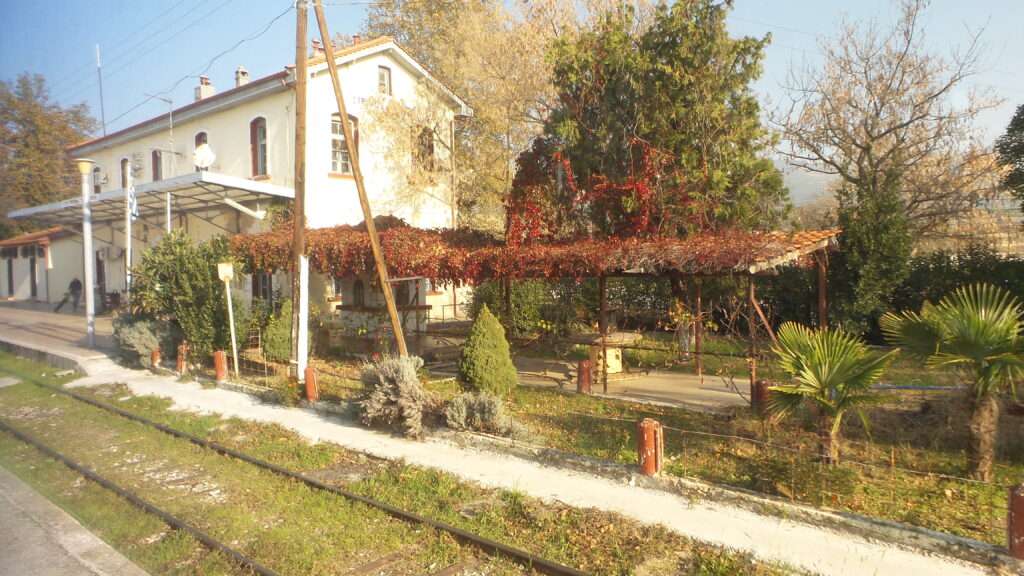
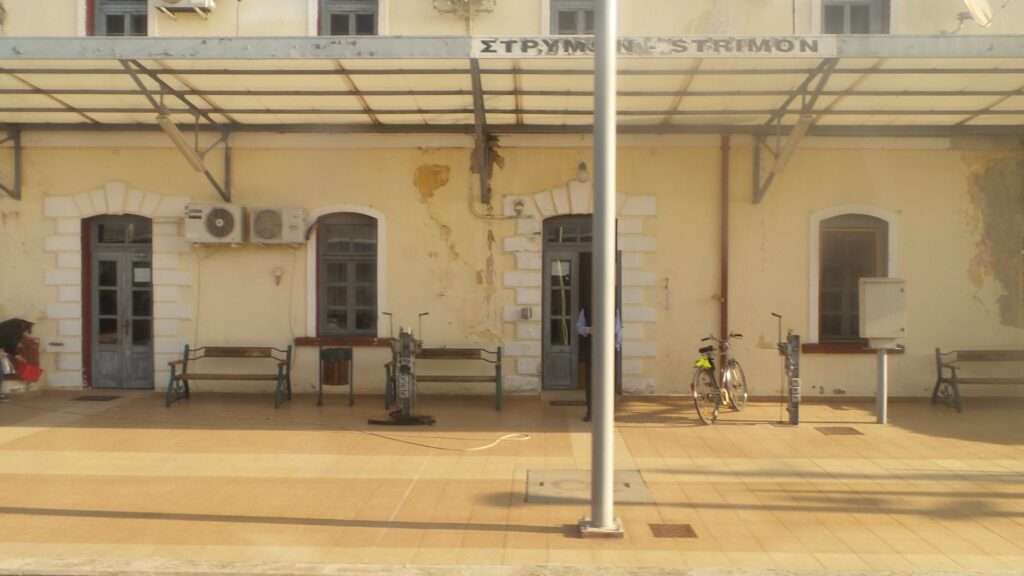
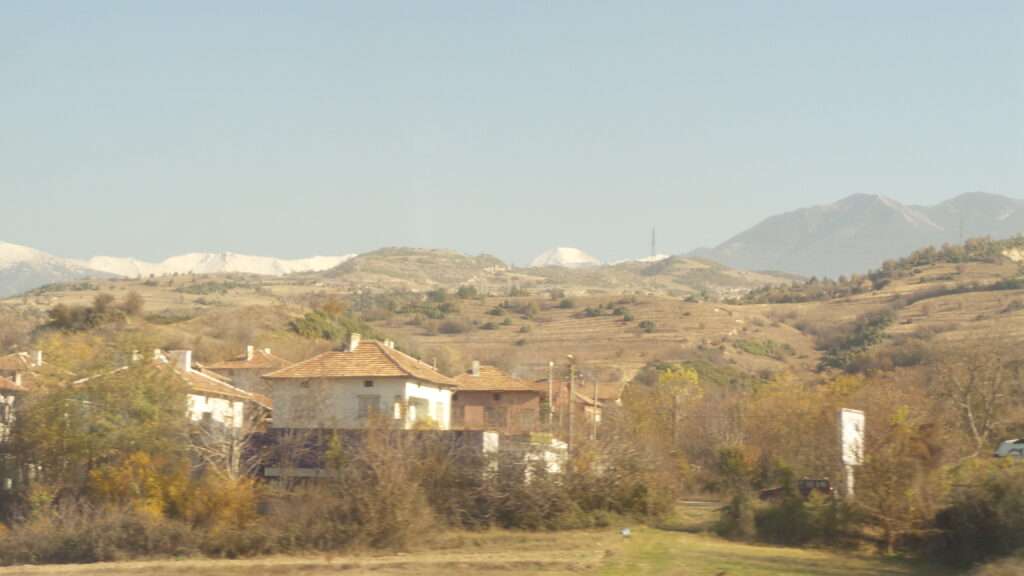
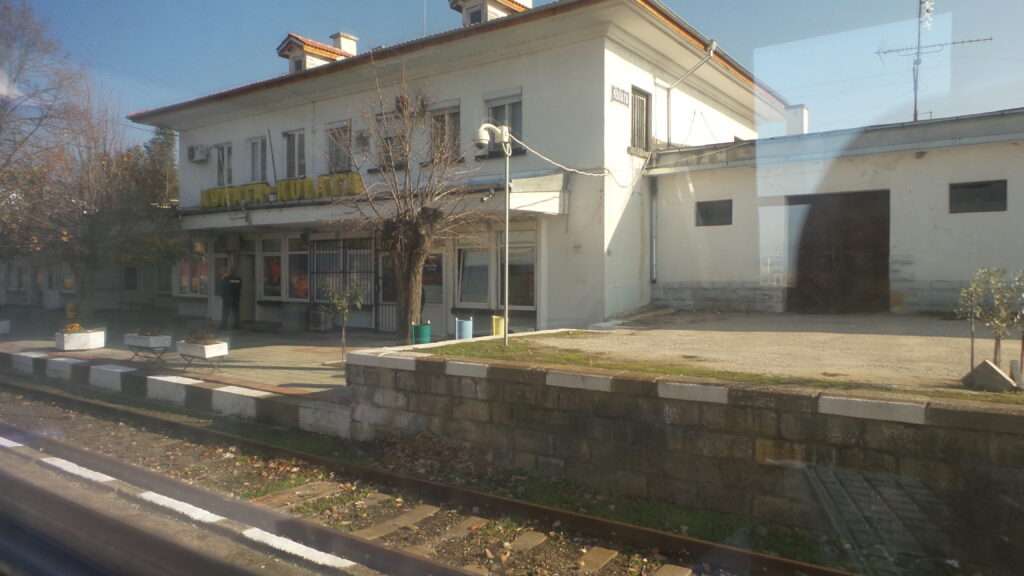
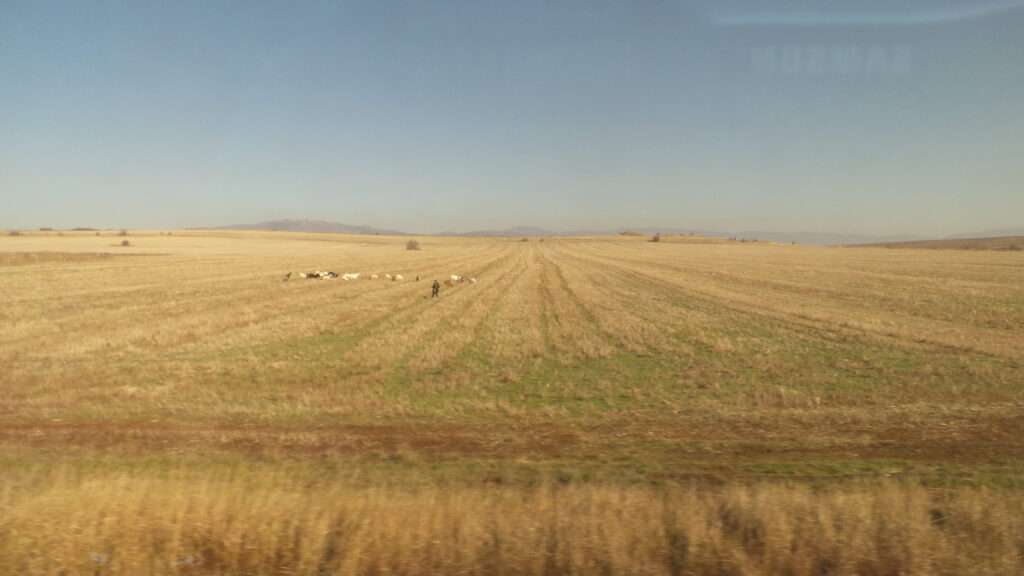
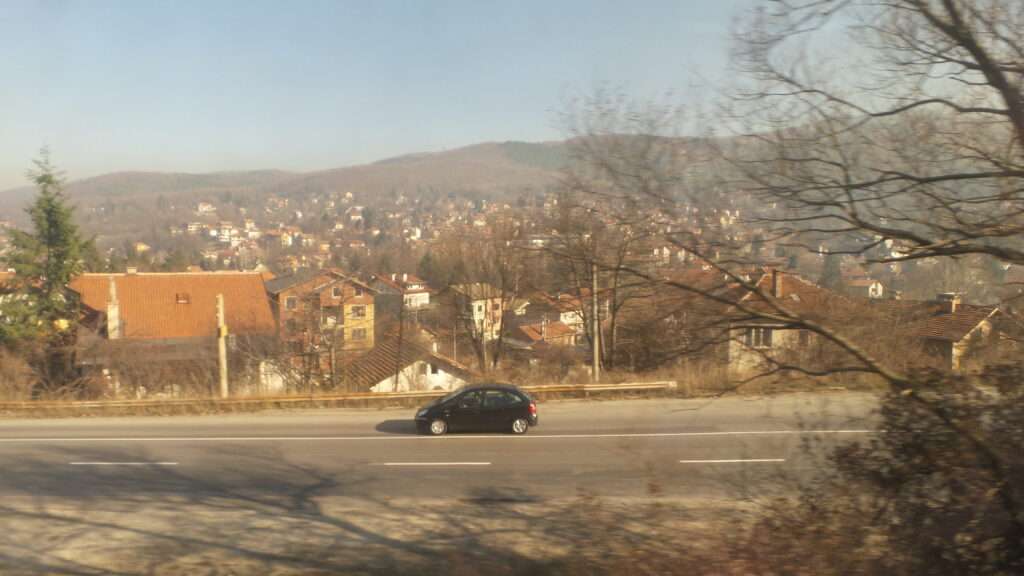
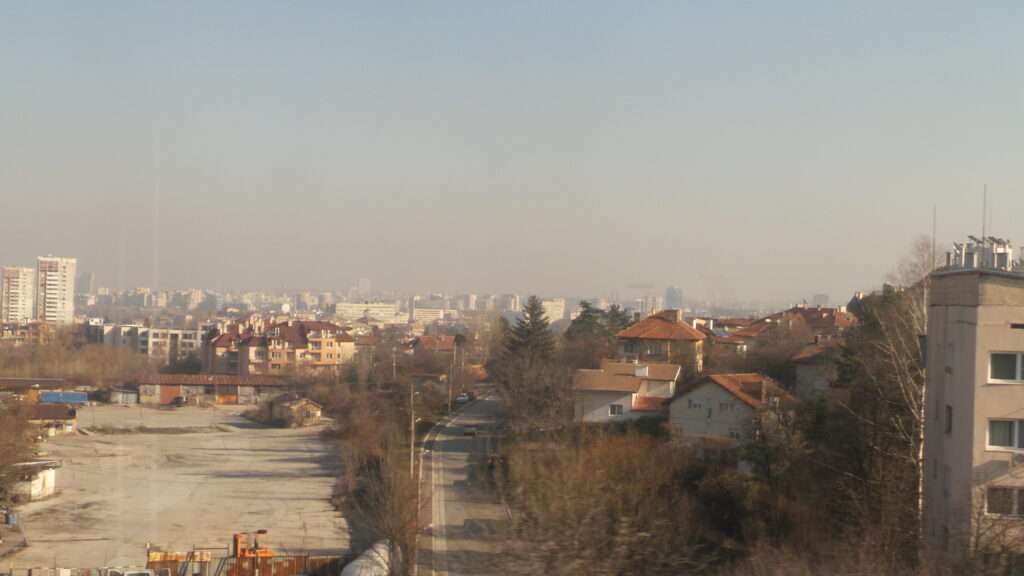
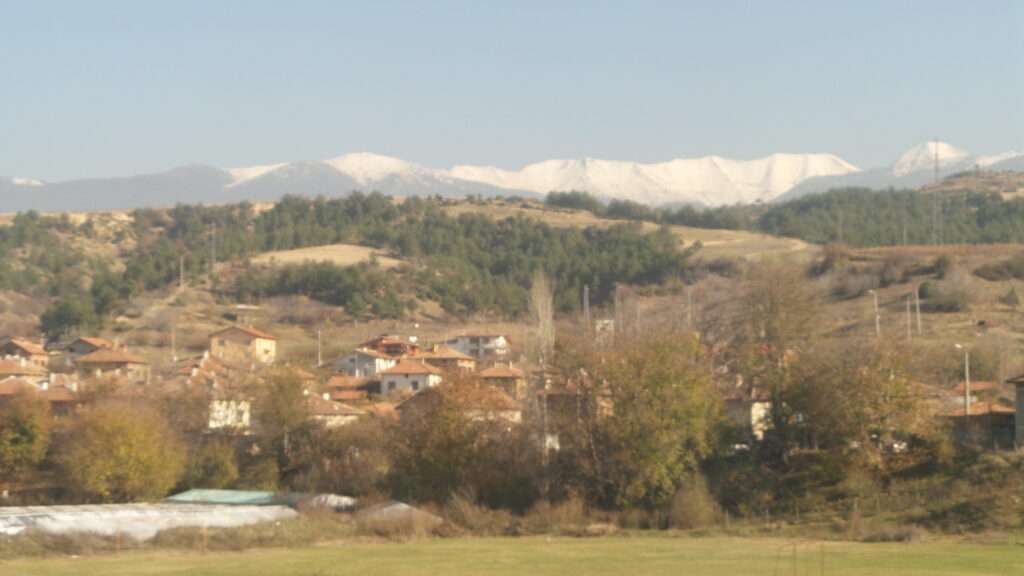

This adventure had taken me from the scenic western coast of Greece to the bustling city of Thessaloniki, where ancient treasures intertwined with modern life. It had then led me through Northern Macedonia, and across the Albanian border, revealing a world unknown to many, where resilience and simplicity prevailed. Finally, I found myself in Sofia, the capital of Bulgaria, encountering the charms of small towns, the labor of farmers, and the occasional inconveniences of travel. Each step of the journey had broadened my perspective and added new layers to my understanding of the world.
Scroll down below the comment section (leave a comment if you like), to read the next post and discover the next adventure…
